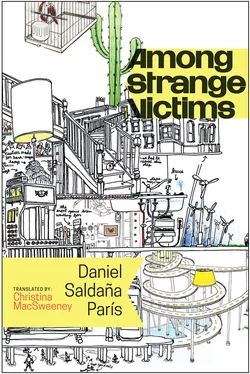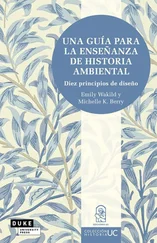Loneliness is always the same, but not the lonely. The discourse we hold back in front of others has a different weight to that which we speak aloud when no one is listening. In a certain sense, one offers inner comfort since it is a form of intimacy. The other, in contrast, makes a hollow in the world, in whose furthest corners the words ricochet to remind us that they have no taste.
Rodrigo called Cecilia one cloudy afternoon. She sounded unusually cheerful, and there was no indication in her voice of the well-known reproach that normally underlay her tremulous vowels, sometimes prolonged into a loving complaint (“They’ll seeee. You’ll be back sooon,” she would say to him). But this time, nothing: a precise description of the atmosphere in the office, a detailed account of her father’s most recent attempts to eliminate the damp in the living room — the old man had taken up the task again, with modest results and an irrational sense of victory. . in fact, a trivial, if not completely comfortable conversation, without the mild, balsamic triviality of couples who tie each other down with the chains of their inexhaustible affection. Or perhaps Rodrigo’s mood — equivalent to the one that invades a sensitive soul when he considers the possibility of having contracted an incurable disease — was tingeing his perception of the world and other people with a violet hue, the violet of his sporadic migraines and his frequent periods of melancholy. Micaela — like a tumor, the nature of which is still unclear — glowed in his memory, threatening to either spread through his hypothalamus or discreetly dwindle under the benign, chemotherapeutic effects of distance. Rodrigo couldn’t decide which was more worrying: that love existed and had, a few days before, wormed its way into him, or that the adulterated tequila in the cantina had played a dirty trick on him. In the former case, he would be obliged to renounce, out of simple coherence, the greater part of his cynicism, something he found worrying since his cynicism was, as far as he knew, his only recourse for externalizing a sharp intelligence; in the latter, the unbearable confirmation of the mediocrity of the world would weigh on him for several decades, until a merciful case of Alzheimer’s would turn his stern, pensive expression into one of drooling innocence. The dice of his life, as someone given to cliché would say, had been cast.
Marcelo came to visit him on Wednesday afternoon. He had heard from Velásquez of Rodrigo’s meeting with Jimmie and the charming Micaela in the cantina in the center. (The gringo had told Velásquez.) He asked about his impressions of the pair, and Rodrigo looked upward and turned his eyes significantly to the left, a zone he reserved for dark thoughts or the most serious considerations, considerations that left him, after some hours of deep conjecture, with a trochaic murmur in his chest.
Marcelo Valente was less talkative than on previous occasions. However, he embarked on a topic that he rarely touched: his relationship with Adela. He told Rodrigo he had “cultivated” a growing affection for his mother, and that verb immediately reminded Rodrigo of his wild, vacant lot in Mexico City. “ Il faut cultiver notre jardin, ” he recited to himself, with a nod to Voltaire, while Marcelo continued his speech. The Spaniard had moved on to his future plans. He wasn’t sure what to do with his essay on Richard Foret and Bea Langley. Gradually, during the months of study and the rereading of love letters, whirlwind poems and unfinished, romantic manifestos, Marcelo’s interest had moved from Foret to Langley. He was no longer so much interested in the mysterious disappearance of the boxer-poet as in Bea’s life in the aftermath of that event.
“I’d like, I think, to focus on what happens after the letters of ‘The End’ fade from the screen. Sure, Richard Foret disappears in the Gulf of Mexico, or is killed in the revolutionary turmoil, or simply vanishes without a trace, as people skilled in the art of bad writing say. But Bea continues in the world afterwards. She’s pregnant with, and then gives birth to Foret’s posthumous daughter; she returns to her native London only to discover it is a city that has nothing to say to her; she travels to Buenos Aires and then, again, to Mexico in search of clues to Richard’s whereabouts, even though she knows very well there is no hope; she writes poems that don’t attain global fame or change the face of literary modernism but that give her moderate pleasure and arouse the admiration of a few friends; she lives something like forty or forty-five years after Foret’s disappearance; she sets up house in Paris because it is the only city where she feels like a stranger, and to have seen everything before is a more than institutionalized way of life; she raises a daughter with whom she hopes to remedy, karmically, the neglect of her first two kids (both of whom, in time, turn out well, although they retain an indelible core of resentment). Beatrice Langley incarnates a drama more private — less spectacular, if you will — than that of her dead husband, but no less intense for it. Foret’s life is the stuff films are made of; Langley’s is the stuff of a novel that, rather than ending with a bang, extends over hundreds of pages until the ink begins to fade and the words become illegible.”
Rodrigo listens in silence to the monologue of his — the word comes into his mind — friend and thinks that in reality Marcelo is obliquely talking about his own life, and Adela’s. It’s clear that in a short time they have become an authentic couple. His mother absentmindedly strokes Marcelo’s neck at breakfast; Rodrigo does not remember her doing anything like that before. What Marcelo is saying, by means of the story of Richard Foret and Beatrice Langley, is that he wants to stay in Los Girasoles; he is not willing just to remember it all as a more or less happy sabbatical trip, the only product of which will be a monograph on a dead poet and an arsenal of memories in which Adela’s thighs have a starring role. He wants to stay, to renounce his lifelong, vain ambition to gain modest fame through his books; he wants to “ cultiver son jardin, ” the garden of bluish cacti and perennial weeds in Adela’s backyard in Los Girasoles.
Rodrigo also wants to cultivate his garden but has yet to find it, unless it is that lot filled with thorn bushes where a hen scratches around night and day in search of worms. Which is his garden? he wonders. A placid life in that small town, like the one Marcelo wants, going to spiritualism sessions with a crazy gringo and a girl he silently desires? Imbibing urine every couple of weeks as a member of an exclusive pro-contemporary art sect? Conjugal life with Cecilia in DF and resigning himself to feeling constantly out of place in relation to everything that exists in his grimy routine? Or is his garden death, a patch of dry earth to which his bones are added; the grief, initially, of his loved ones and then an oblivion that slowly falls like a golden mantle on the heads of Adela, Marcelo, his father, Cecilia, and that at times, being fallible, falls back for a moment — during what would have been his birthday, let’s say — to allow them to dream of an Eden that doesn’t exist and from which Rodrigo contemplates, with peace in his soul, the actions of those who are still alive? Or is his garden nomadic, the negation of that fixed custom of being oneself, a custom you have so diligently cultivated until this moment? Which is his cultivable garden? Which is the piece of the world given to him on loan, even if it is only to set fire to it? Which is the corner crammed with supermarket bags full of cadavers where he will erect the temple of his indifference?
 8
8 
Читать дальше

 8
8 







